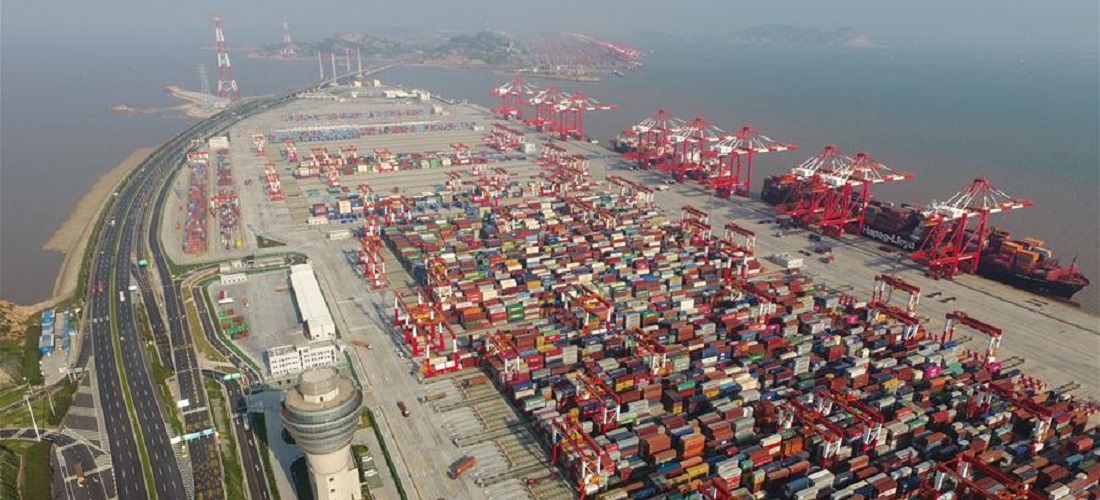
Flexibilization of sanitary measures gives impetus to businesses in China
Jun, 29, 2022 Posted by Gabriel MalheirosWeek 202226
The decision of the government of China to relax sanitary measures to prevent the spread of covid-19 should improve trade flow with Brazil, streamlining logistics and helping replenish consumer goods’ inventories. However, ocean freight prices are unlikely to fall in the short term. Footwear, electronics, technology, and trading companies specializing in imports temper optimism with caution.
The price of sea freight should not fall in the short term as the second half of the year is a high-demand season, boosted by Black Friday and Christmas purchases. Therefore, maritime transport companies tend to see more profitable prices.
“Freight costs were slowly decreasing before the last lockdown [in China]. Previously, the cost of shipping a 40-foot container between São Paulo and Shanghai could be as low as USD 6000. However, at the height of the crisis, costs reached USD 15,000 and now are back to USD 9,000,” said Luciano Sapata, VP and a partner at Sertrading.
He reckons that the short-term trend is adequate for price increases. However, “starting next year, the prices will settle back to around US$ 6,000, a level that the market considers sound today.”
See below the trade record of containerized cargo between China and Brazil from January 2021 to April 2022. The data is from DataLiner.
Containerized cargo trade with China | Jan 2021 – April 2022 | TEUs
Source: DataLiner (click here to request a demo)
Giovanni Cardoso. the president of home appliance maker Mondial said freight prices rose again this month, after a fall in May, on account of vessels contained in Northern Europe due to the war in Ukraine. “Prices have increased by reducing the volume of ships available on the market.”
According to Cardoso, the price of a container varies depending on its final destination in Brazil. For example, it can range from USD 8.5 thousand if the destination is Mondial’s distribution center in Araquari, Santa Catarina, where the product arrives in 30 days, to a range of USD 14 thousand to USD 18 thousand to the factory in Manaus, where lead times are 60 days.
Even though freight prices are unlikely to fall, greater flexibilization in China helps replenish inventories and expand Sertrading’s business. “Given the reopening of ports and the seasonal dynamics of the second half of the year, we expect a 50% increase in import volumes compared to the first semester,” said Sapata.
For the footwear sector, the flexibilization of the lockdown measures announced on the 28th in China was a “good sign.” Notwithstanding, there is still fear of an eventual upsurge in covid-19 cases and the possibility of new restrictions being implemented in China, a scenario that maintains shipping prices salty.
Luiz Ribas Júnior, the international market manager at the Brazilian Association of Companies of Components for Leather, Footwear and Manufactured Goods (Assintecal), said China is the leading destination for their products, paving the way for transactions worth USD 39.88 million from January to May. “Exports to China haven’t even dropped. But compared to other markets, it grew at a much slower rate. It grew 11% in five months, while markets like Argentina grew by around 60%,” he said.
The products imported from the companies in this industry, mainly resins used to manufacture soles or insoles, were scarce. “The impact now is perceived as positive, as it helped reestablish access routes to products that only have Chinese suppliers,” says Ribas Júnior.
Lack of inputs was not a problem for shoe manufacturer Grendene, according to its director of investor relations Alceu Albuquerque. But a “very long delay” was felt in the time products took to arrive in Brazil. “These announcements [of flexibility in sanitary measures in China] tend to help improve flow and delays.”
Grendene’s biggest expectation lies in exports to the Chinese market. Albuquerque says that lockdowns in China disrupted the operations of Grendene Global Brands (GGB, the joint venture with 3G Radar) in the first half of the year. “One example is that GGB couldn’t even open a bank account in China because employees couldn’t leave their homes. I had to move shoes from one distribution center to another, which wasn’t possible because of the sanitary measures.”
With sales at a slow pace, the National Association of Electronics and Home Appliance Manufacturers (Eletros) says the flexibilization announcement in China comes at a good time. Its executive president Jorge Nascimento notes that the decision brings greater security to the supply chain.
“In recent months, however, the impacts were felt more mildly by the sector because of the current economic situation that, unfortunately, has been prompting successive decreases in sales,” he observes. That is, given the reduction in sales in the domestic market, manufacturers are not in much need of replenishing inventories.
Nascimento believes that sales of white goods (such as refrigerators and stoves) and brown goods (such as televisions and stereos) will improve in the second half of the year when demand for these products generally increases.
The real impact on the supply chain should occur in the medium term, says the president of the Brazilian Electrical and Electronics Industry Association (Abinee), Humberto Barbato. “We hope that there will be greater availability of vessels and planes, which may, in the medium term, be reflected in prices, but not immediately,” he said.
Source: Valor Econômico
To read the full original article, please go to: https://valor.globo.com/empresas/noticia/2022/06/29/flexibilizacao-na-china-destrava-negocios.ghtml
-
Other Logistics
Dec, 03, 2020
0
35 new Brazilian infrastructure projects approved by the CPPI
-
Other Logistics
Aug, 18, 2021
0
Fully automated container storage system makes first successful trial
-
Mar, 16, 2023
0
Innovations and oil industry growth expected ahead for Brazilian maritime market
-
Oil and Gas
Jan, 09, 2025
0
Oil becomes Brazil’s top export, challenging Lula’s environmental agenda



